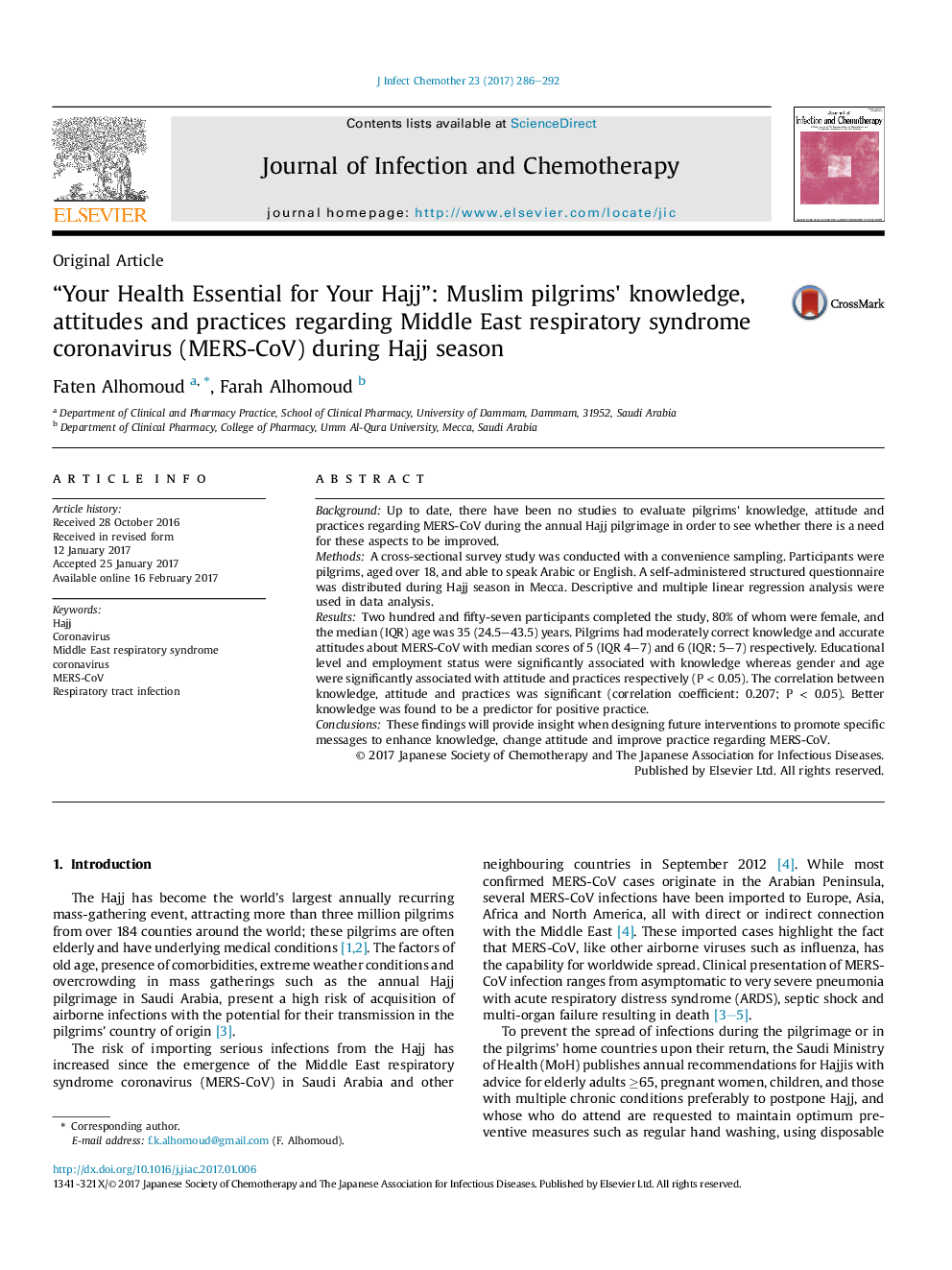| Article ID | Journal | Published Year | Pages | File Type |
|---|---|---|---|---|
| 5668887 | Journal of Infection and Chemotherapy | 2017 | 7 Pages |
BackgroundUp to date, there have been no studies to evaluate pilgrims' knowledge, attitude and practices regarding MERS-CoV during the annual Hajj pilgrimage in order to see whether there is a need for these aspects to be improved.MethodsA cross-sectional survey study was conducted with a convenience sampling. Participants were pilgrims, aged over 18, and able to speak Arabic or English. A self-administered structured questionnaire was distributed during Hajj season in Mecca. Descriptive and multiple linear regression analysis were used in data analysis.ResultsTwo hundred and fifty-seven participants completed the study, 80% of whom were female, and the median (IQR) age was 35 (24.5-43.5) years. Pilgrims had moderately correct knowledge and accurate attitudes about MERS-CoV with median scores of 5 (IQR 4-7) and 6 (IQR: 5-7) respectively. Educational level and employment status were significantly associated with knowledge whereas gender and age were significantly associated with attitude and practices respectively (PÂ <Â 0.05). The correlation between knowledge, attitude and practices was significant (correlation coefficient: 0.207; PÂ <Â 0.05). Better knowledge was found to be a predictor for positive practice.ConclusionsThese findings will provide insight when designing future interventions to promote specific messages to enhance knowledge, change attitude and improve practice regarding MERS-CoV.
